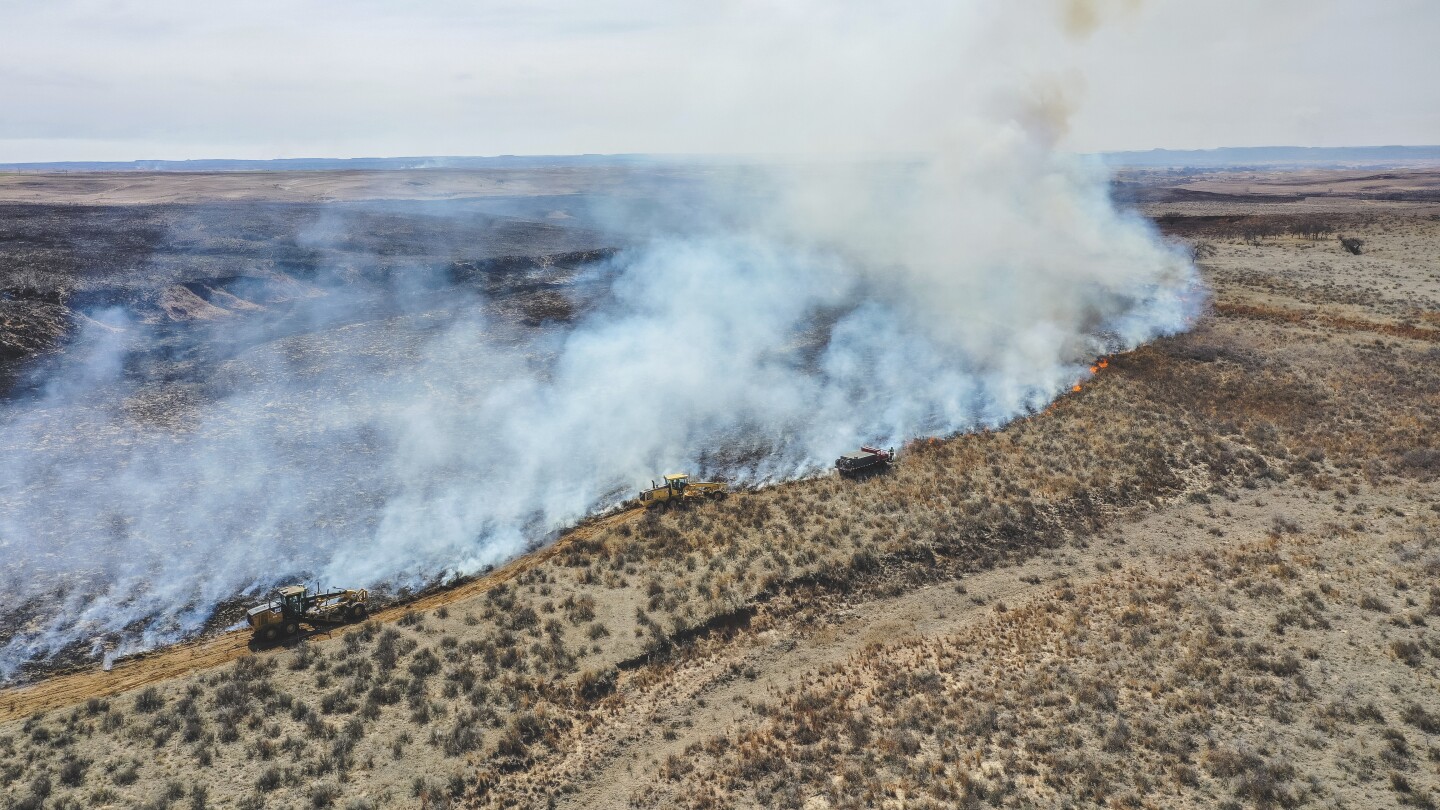Power lines ignited massive wildfires across the Texas Panhandle that destroyed homes and killed thousands of livestock, officials said Thursday, including the largest blaze in state history that the utility provider Xcel Energy said its equipment appeared to have sparked.
The Texas A&M Forest Service said its investigators have concluded that power lines ignited both the historic Smokehouse Creek fire, has burned nearly 1,700 square miles (4,400 square kilometers) and spilled into neighboring Oklahoma, and the nearby Windy Deuce fire, which has burned about 225 square miles (582 square kilometers). The statement did not elaborate on what led to the power lines igniting the blazes.
“Based on currently available information, Xcel Energy acknowledges that its facilities appear to have been involved in an ignition of the Smokehouse Creek fire,” the utility provider stated.
The wildfires that ignited last week in the windswept rural area prompted evacuations in a handful of small communities, destroyed as many as 500 structures and killed at least two people.
AP correspondent Jackie Quinn reports a Texas utility is admitting a role in sparking the state’s worst wildfire.
Containment levels have been increasing — the Smokehouse Creek fire was 74% contained Thursday while the Windy Deuce fire was 89%. But the Forest Service warned that high winds were expected to be moving across the dry landscape, increasing fire danger.
Downed power lines and other utility equipment have led to other major wildfires, including the deadly blaze in Maui last year and a massive California wildfire in 2019.
A lawsuit filed last week in Hemphill County alleged that a downed power line near the town of Stinnett on Feb. 26 sparked the Smokehouse Creek fire. The lawsuit, filed on behalf of a Stinnett homeowner against Xcel Energy and two other utilities, alleged the blaze started “when a wooden pole defendants failed to properly inspect, maintain and replace, splintered and snapped off at its base.”
While Xcel Energy said in its Thursday news release that its equipment appeared to have played a role in igniting the Smokehouse Creek fire, it disputed claims of negligence in maintaining and operating infrastructure. The Minnesota-based company also noted in the statement that it did not believe its equipment caused the ignition of the Windy Deuce fire, nor was it aware of any allegations that it had.
Two women were confirmed killed by the wildfires last week, one who was overtaken by flames after getting out of her truck and another whose remains were found in her burned home. On Tuesday, the fire chief in one of the hardest hit towns died while responding to a house fire. An official said that while the blaze wasn’t caused by a wildfire, Fritch Fire Chief Zeb Smith had been tirelessly fighting wildfires for over a week when he died. An autopsy will determine Smith’s cause of death.
The Associated Press has requested the full reports from the Forest Service on the causes of the Smokehouse Creek and Windy Deuce fires.
Dale Smith, who operates a large cattle ranch east of Stinnett, worked last week to tally up the number of cattle he’d lost as the wildfires raged. He said then that he believed a faulty power line was likely to blame, and that he’d been concerned about their maintenance.
“These fires are becoming a regular occurrence,” he said. “Lives are being lost. Livestock are being lost. Livelihoods are being lost. It’s a sad story that repeats itself again and again.”
___
Associated Press journalist Sean Murphy contributed to this report from Oklahoma City.


